Build-a-Bear 2.0: your favourite animal made from plastic waste
This project combined teaching children 3D printing skills with raising awareness about plastic waste. Workshops were held across Newcastle and Manchester, and children had the opportunity to take home their own 3D printed item, with the filament constructed from recycled coffee cups.
The children not only learned about 3D printing but also became more aware of the environmental impact of plastic waste.
The project worked with Print City, based in Manchester, to engage an older audience of 14–15-year-olds in schools located in underrepresented areas. Meanwhile, at the Life Science Centre in Newcastle, visitors were targeted to engage a younger audience. As the project progressed, it became clear that it had much broader appeal, with parents also becoming engaged.
Dr Marloes Peeters, Deputy Director of Chemical Engineering at Newcastle University, came up with the idea to show how engineers can contribute to sustainability. She coordinated the project and helped with the training of engineers. She said: “Everyone at home uses coffee cups so we wanted to spread the message of how we can better separate plastics and do something useful with it.”
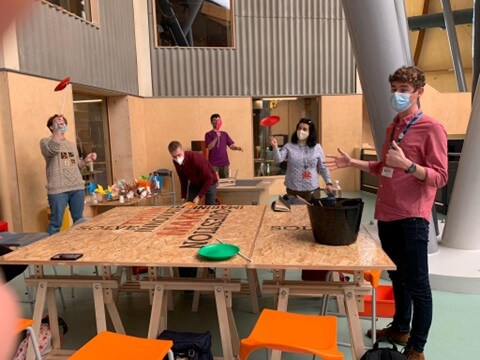
From bears to name tags
Hence the project name, the original plan was for the children to take home their own bear. However, time constraints meant that the bear design was replaced by a name tag design to give all children the chance to take a 3D printed design home.
A flat and wide design, like a name tag, was quicker to print, meaning more children could be involved. The bear design took longer to print than expected and Marloes commented that the team underestimated the attention span of kids when designing the activity. Pre-printed bears, and other animals, were shown to the kids instead.
Covid-19 meant the project had to adapt. In-person workshops largely still went ahead but with Covid provisions such as facemasks. As a result, Marloes and her team created YouTube videos, one about 3D printing and another about the circular economy approach. Marloes also found it much harder to get schools to engage after the pandemic.
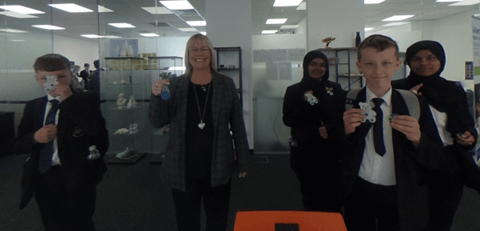
Engaging young people with engineers
Dr Jake McClements is a Research Associate at Newcastle University and one ten engineers that took part across Newcastle and Manchester. He helped to design the workshop activities and attended a public engagement training session at the Life Science Centre, Newcastle. The training session involved learning how to work with children during science-based outreach activities
He described the project as a “great experience where we were able to share our research topics at Newcastle University with young people in the local community.”
“It was fantastic to see the children so interested, engaged, and passionate about 3D-printing, particularly regarding its potential to contribute to the circular economy.”
Tips for a successful Ingenious project
Marloes’ main advice is to do a trial run of the project.“Only when you do a trial run you realise the limitations, having a whole day would be nice but in a science centre setting you don’t have that time.”
She described recruiting volunteers as “relatively easy”. The volunteers were also able to give up much more of their time than she expected. “When choosing the project idea, think of an activity that you wouldn’t normally have the time and resources to do.”
Marloes was delighted to find the project was greeted with huge enthusiasm. She said: "It was fulfilling to see the project come to life, and to see children as young as 3 engaged in the project.”
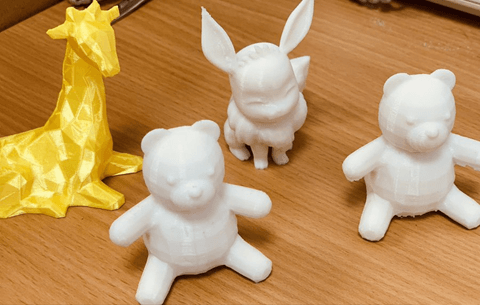
Legacy
Marloes is still making YouTube videos on her channel featuring "meet the scientist" segments. She would also like to organise events such as Women in Engineering days to help to increase diversity and representation within the field.
The project has left a big legacy, inspiring some of the volunteers to embark on their own outreach initiatives, and the team hopes to create a bigger network and expand the project's impact further.
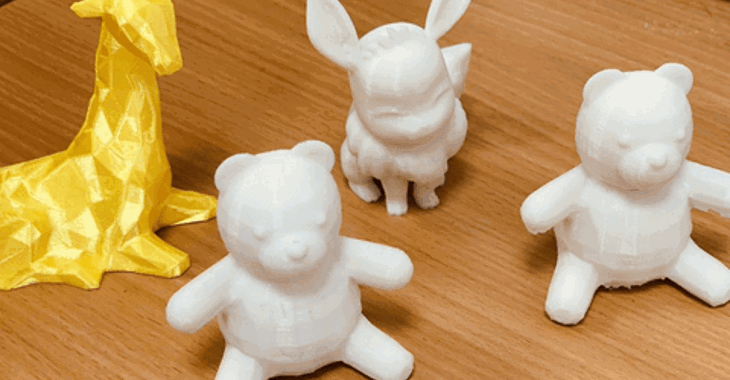
The Future of 3D Printing: Project Build-A-Bear 2.0
This video gives you a sneak peek into Project Build-A-Bear 2.0.
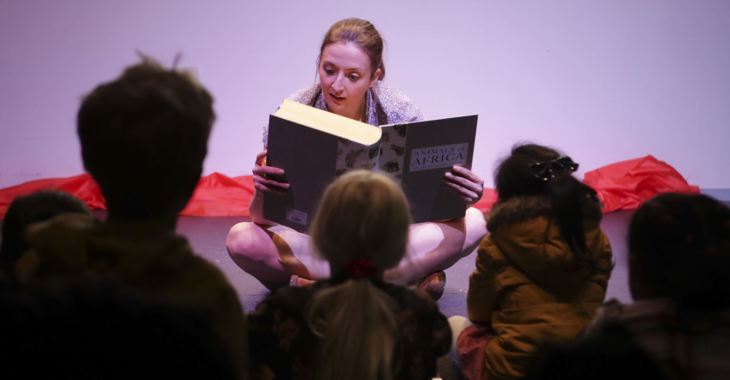
Ingenious public engagement grants scheme
Ingenious is a public engagement grants scheme for projects that engage the public with engineers and engineering while providing engineers with training and opportunities in public engagement. Clo…
